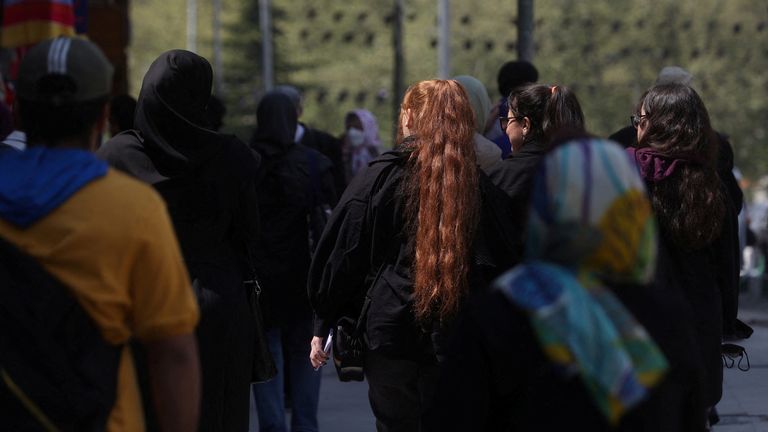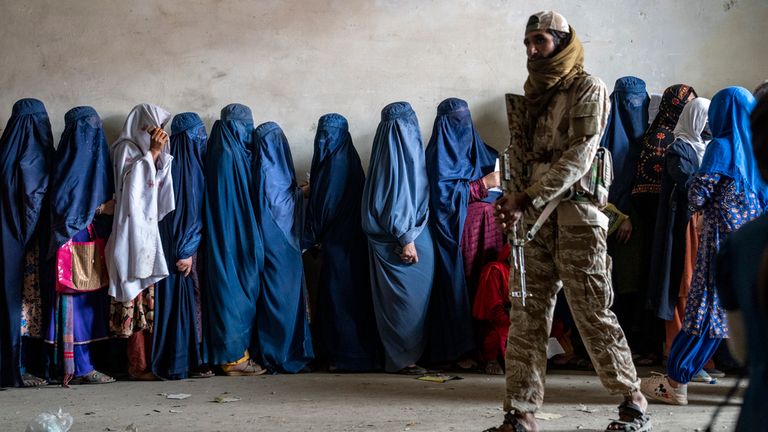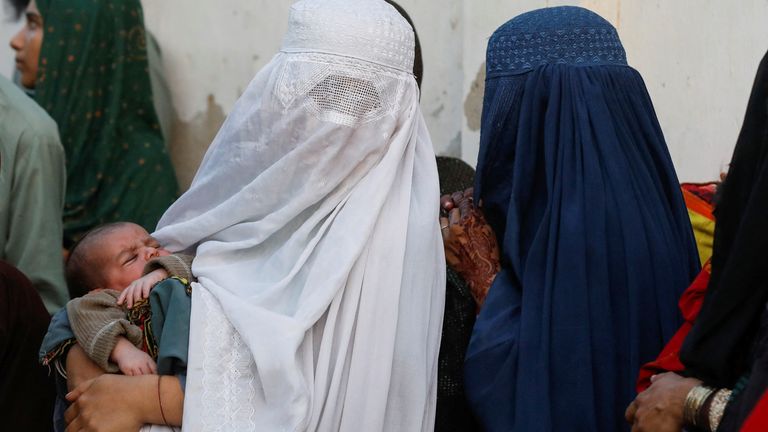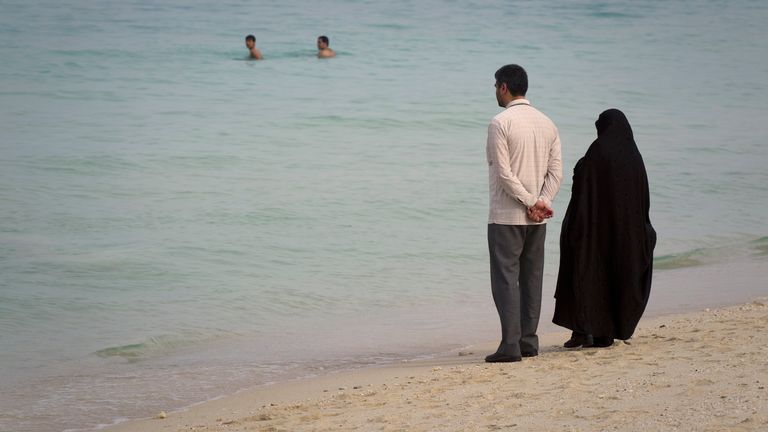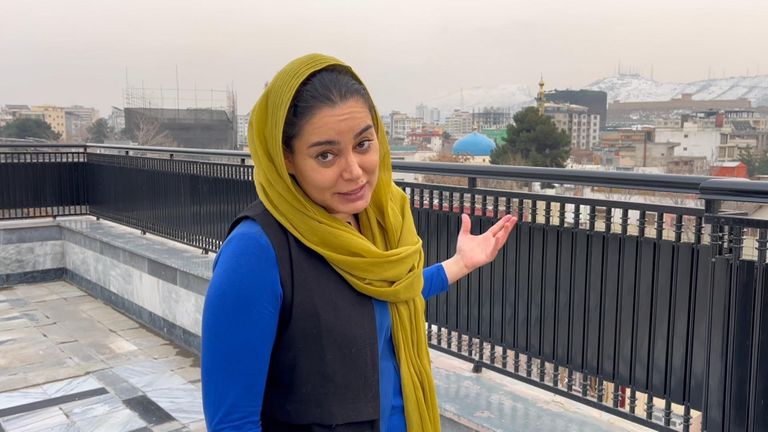Afghan activist who was 'erased' by Taliban reveals how women are 'suffering' in Iran
An Afghan women's rights activist reveals to Sky News the stark differences - and what is not so different - in how the Iranian and Afghan regimes treat women.
Friday 3 May 2024 05:52, UK
A young women's rights activist from Afghanistan recently left the country and travelled to Iran.
Women in both countries have few rights - but the activist told Sky News that when she arrived she saw a massive difference between the two places.
That was until Iranian women revealed how they suffered under the Islamic Republic's regime.
We are keeping the activist anonymous to protect her safety. This is her story:
Almost three years of living in Afghanistan under the Taliban regime has systemically erased me and my fellow Afghan women from public life.
During this time, I struggled with deep depression and mental health crises, like countless women in the country.
There was no hope my situation would improve so my brother urged me to go travelling with him.
For most of people in Afghanistan, there are two countries we can travel to - Pakistan and Iran.
But because I'm a women's rights activist and there has been a women's revolution in Iran after the death of Mahsa Amini, I chose to go to Iran.
In the first days of our arrival, I could see women everywhere - in the streets, schools, universities, parks, restaurants - free to wear and do what they want at any time.
One day, I went to a beauty salon in the Mashhad area of Iran.
When I entered, there was a woman who just entered the salon before me. She was crying and all the women in the salon were welcoming her with tears and open hugs.
Waiting for my turn, I got more information about Sapideh. She was a well-known client of the salon for years.
She had lost her father recently - her only parent - and had been at home overcoming her grief and loss. It sounded like she didn't have any other family or friends to support her in this difficult time.
The ladies in the beauty salon listened to her words and cries and everyone did their best to comfort her.
When I was leaving, I could see that three women were working on her face, hair, and nails. She had stopped crying.
In Afghanistan, beauty salons - the small spaces that allow women to help and support each other - are all closed.
On my way to the hotel, I saw women driving, or women without hijab who were free - and my mind could only think of Afghan women.
Because we are used to it, we don't know that our rights and our freedoms have been stolen from us.
During those first days, I was constantly comparing our situation with Iranian women - I couldn't find any similarity between our struggles, even though both countries can be described as having gender apartheid regimes.
In Afghanistan, women are fighting for basic human rights that we are denied, but Iranian women already appear to have them all.
Iranian women are suffering but I wasn't able to see that as I am one of the millions of Afghan women who are subject to suffering, oppression, and pain.
Meeting Tranom, a young Iranian teenager, in the bathroom of a shopping mall, changed my mind.
Tranom, who was 16, had short purple hair, no hijab, and was wearing a T-shirt and jeans. She told me that when she had a proper hijab, she had been arrested three times.
"It was too bad for a woman to be arrested in my society but now I'm not scared anymore. I wear what I want," she said.
When I was in Tehran, I met Zari, a construction engineering student.
We discussed my first impressions of Iran. Zari said that the regime is mostly targeting the young generation of Iranians.
Areas that have more young people also have more trouble and tensions.
"You might have not seen the vans of Gasht-a Ershad, the Iranian morality police, in other areas but you can see one of them in [the] neighbourhood where the university is located and the parks where female and male students go," said Zari.
Young Iranian women, especially students, are oppressed every day under the pretext that their hijab is not worn correctly, I learned from Zari.
Read more:
Women snatched from Iranian streets
Afghan families 'let down' by UK government
Underground protesters waging war against Iranian regime
When I travelled with my brother to Kish Island, in southern Iran, I met Fatima, a teacher who was there with her daughter and husband.
She spoke about a deep mental health crisis and depression among Iranian women.
While we were sitting on the beach of the Persian Gulf, she asked me to watch each woman who was passing in front of us.
She told me that Kish Island is one of the most expensive places in the country - many Iranians dream of visiting. The people here are the wealthy of Iran, she says.
Be the first to get Breaking News
Install the Sky News app for free


"When you are looking at women, you see they wear expensive clothes and they have plastic surgery and sometimes heavy make-up," said Fatima.
"But none of them are happy because they have been oppressed by the regime. Because they are not free."
"The fear from the morality police [is that they] never leave them alone. They all are aware of countless young women who have been arrested under the hijab pretext, and they have been raped, tortured, killed and disappeared. We all are alive but we are not living."
Gender apartheid must be codified as a crime against humanity - let all Afghan and Iranian women live free.



